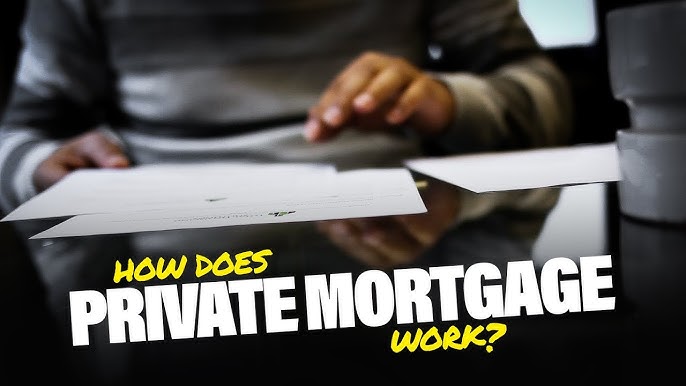Everything About Mortgage Lending: Trick Insights for Homebuyers and Investors
Mortgage lending is an intricate landscape, using numerous car loan types customized to diverse borrower demands. Understanding the nuances of traditional, FHA, VA, and USDA car loans can substantially impact homebuyers and financiers alike. Furthermore, credit rating play a crucial duty in safeguarding beneficial rates of interest. As the home mortgage application procedure unfolds, several vital variables come right into play, affecting both authorization and terms. What are the necessary steps and techniques to navigate this elaborate process efficiently?
Understanding Different Sorts Of Mortgage Loans
Understanding the numerous sorts of mortgage loans is vital for possible buyers, as each alternative deals with different financial circumstances and requirements. Standard lendings, generally used by personal lenders, call for a greater credit report and frequently involve a deposit of at least 20%. On the other hand, FHA financings are government-backed and made for new purchasers, permitting lower credit rating scores and smaller sized down repayments. VA fundings, offered to veterans and energetic army members, offer favorable terms and no down settlement need. Furthermore, USDA fundings support rural buyers with reduced to moderate earnings, offering zero down payment alternatives. Fixed-rate home loans maintain regular regular monthly payments over the lending term, while adjustable-rate mortgages begin with lower rates that can change. By understanding these differences, property buyers can make informed decisions customized to their economic circumstances and lasting objectives. Selecting the right home loan kind is a substantial action in the home-buying procedure.
The Relevance of Debt Ratings in Home Mortgage Authorization
Credit ratings play an important function in the home loan approval process, serving as a crucial sign of a debtor's credit reliability. A higher credit history score can bring about extra desirable interest rates, substantially impacting the general cost of a mortgage. Understanding the fundamentals of credit score ratings and checking out methods to improve them can greatly benefit possible property buyers.

Credit Score Essentials
A solid credit history score plays an important duty in the home loan authorization process, affecting lending institutions' understandings of a consumer's dependability. Credit report, normally ranging from 300 to 850, mirror a person's creditworthiness based upon their economic history, consisting of payment background, credit utilization, size of credit report, sorts of credit score accounts, and recent inquiries. Lenders analyze these ratings to assess the danger associated with offering money. Usually, a higher credit report suggests lower threat, resulting in a smoother approval procedure. Homebuyers and financiers should routinely examine their credit score reports for mistakes and take steps to boost their ratings, such as paying bills promptly and minimizing arrearages. A solid credit rating is a vital possession in securing positive mortgage terms.
Effect on Rates Of Interest
Rate of interest on home mortgages are substantially affected by the debtor's credit report score, which acts as an essential indicator of monetary dependability. Lenders examine credit history to assess the threat associated with prolonging a car loan. Private Mortgage Lenders Savannah GA. Greater credit report normally lead to lower rate of interest, as they suggest that consumers are a lot more most likely to settle their financial debts. On the other hand, lower credit report might result in higher prices, showing the raised danger regarded by loan providers. This partnership highlights the importance of keeping a strong credit profile for potential consumers. Understanding just how credit rating influence interest rates can equip homebuyers and capitalists to make educated choices, possibly conserving them considerable quantities over the life of their home loan
:max_bytes(150000):strip_icc()/mature-couple-meeting-with-financial-advisor--474096640-5977931d519de200119c3424.jpg)
Improving Your Credit Report
Property buyers crazy about safeguarding positive mortgage terms should recognize the critical function of credit rating in the authorization process. A higher credit report usually causes reduced rate of interest, which can substantially lower the overall cost of a home mortgage. Lenders evaluate debt scores to assess a candidate's economic integrity, affecting their decision to accept or reject a mortgage application. To enhance their ratings, prospective borrowers must focus on timely expense repayments, lowering arrearages, and preventing brand-new credit history inquiries. Routinely evaluating debt reports for mistakes can additionally help maintain accuracy. By taking these steps, property buyers can improve their creditworthiness, ultimately improving their chances of obtaining a mortgage with positive problems.
Secret Aspects Affecting Passion Prices
Exactly how do different economic elements shape the landscape of mortgage rate of interest? Several crucial elements play an essential role in identifying these prices. The Continue Federal Book's financial policy substantially affects rates of interest; when the Fed elevates or decreases benchmark prices, home mortgage prices generally comply with match. Furthermore, inflation fads impact the purchasing power of consumers, leading loan providers to readjust prices appropriately. Economic development indications, such as work prices and GDP development, also influence rates of interest; a robust economic situation usually causes greater prices due to increased need for loans. Moreover, the bond market functions as an essential standard; when bond yields increase, mortgage prices tend to raise too. Finally, specific debtor elements, consisting of credit rating and debt-to-income proportion, can affect the certain rate supplied (Private Mortgage Lenders Savannah GA). Understanding these characteristics helps property buyers and investors make educated choices in the mortgage market
The Home Mortgage Application Process Explained
What steps are associated with securing a home loan? The home mortgage application process starts with the consumer gathering needed documentation, such as earnings declarations, income tax return, and debt history. Next, the debtor picks a lender and sends a formal application, offering all needed info. The loan provider after that performs a credit check and examines the borrower's financial stability.Following this, the lender will execute an assessment of the property to determine its market value. As soon as the property is evaluated, the lending institution examines the application, including the borrower's economic history and the evaluation results, to determine whether to authorize or refute the financing. If accepted, the debtor receives a loan price quote detailing the terms and costs connected with the mortgage.Finally, the borrower testimonials and indications the closing documents, formally securing the home loan. Understanding this procedure is vital for potential great site house owners as they navigate the intricacies of mortgage loaning.
Tips for First-Time Homebuyers
Novice buyers face an one-of-a-kind set of obstacles when entering the property market. Understanding the different sorts of mortgages readily available and efficiently budgeting for their acquisition are vital action in the homebuying journey - Private Mortgage Lenders Savannah GA. By furnishing themselves with this expertise, they can make educated decisions that line up with their economic goals
Recognizing Home Loan Kinds
Navigating the world of home loan types can be daunting for those getting in the real estate market for the very first time. Comprehending the numerous alternatives is vital for novice property buyers. Fixed-rate home mortgages offer predictable monthly repayments, making budgeting easier. Alternatively, variable-rate mortgages (ARMs) normally begin with reduced prices that can fluctuate in time, which may be attractive however lugs risks. Government-backed lendings, such as FHA and VA financings, provide added support for qualified customers, typically calling for lower deposits. Additionally, novice property buyers might check out standard finances that stick to specific requirements. Each mortgage type has unique advantages and drawbacks, so it is essential for beginners to research thoroughly and analyze their long-lasting economic goals prior to deciding.
Budgeting for Your Acquisition
When starting on the trip of homeownership, efficient budgeting is essential for prospective purchasers to guarantee financial security throughout the process. New property buyers ought to start by evaluating their revenue and expenditures, ensuring they allocate funds for a deposit, closing costs, and moving expenses. Establishing a monthly spending plan that includes home mortgage payments, real estate tax, insurance policy, and upkeep costs is important. Buyers need to also factor in possible fluctuations in rate of interest and market conditions. Producing an emergency fund can give a safety web for unforeseen expenses. Additionally, customers may profit from seeking advice from financial experts or using on-line budgeting tools to get a more clear understanding of their monetary scenario. Mindful preparation ultimately causes informed choices and a successful home acquisition.
Funding Options for Real Estate Investors
What financing choices are offered to actual estate investors seeking to increase their profiles? Capitalists can discover several avenues. Conventional home loans stay a preferred selection, usually calling for a bigger deposit and great credit rating. Investors may think about tough cash finances, which are temporary loans safeguarded by genuine estate, using fast access to resources but at higher interest rates.Another option is personal funding, where investors can borrow from close friends or household, often with more flexible terms. For those seeking to fund several properties, portfolio financings may be ideal, permitting multiple homes to be packed under one mortgage.Additionally, genuine estate crowdfunding systems have actually emerged, enabling capitalists to pool resources with others for residential property investments. Lastly, leveraging equity in existing residential or commercial properties pop over to this site via cash-out refinancing can offer funds for brand-new financial investments. Each alternative has its benefits and risks, needing mindful consideration based on specific capitalist goals.
Often Asked Inquiries
What Are the Typical Closing Costs Linked With a Mortgage?
Closing expenses commonly include evaluation costs, title insurance, lawyer fees, and origination costs. These expenditures typically vary from 2% to 5% of the car loan quantity, impacting the general financial dedication for the buyer.
How much time Does It Require To Close on a Home mortgage?
The duration to close on a mortgage typically varies from 30 to 45 days, relying on different aspects, consisting of loan provider performance, documents completeness, and market conditions, which can significantly influence the overall timeline.

Can I Refinance My Home Loan Later?
Yes, refinancing a home loan later on is possible. Property owners typically pursue re-financing to safeguard reduced rates of interest, lower month-to-month settlements, or accessibility home equity. They should take into consideration connected fees and their economic situation prior to proceeding.
What Takes place if I Miss a Mortgage Settlement?
If a home loan payment is missed out on, the customer might deal with late charges, potential damages to their credit history, and feasible repossession procedures. Lenders generally offer poise durations, but consistent missed out on settlements can bring about serious effects.
Exist Charges for Paying off My Home Mortgage Early?
Many lenders enforce prepayment fines for early home mortgage payback, possibly setting you back customers additional charges. Terms vary substantially amongst lenders, so it is crucial for borrowers to review their mortgage agreements prior to making very early settlements.